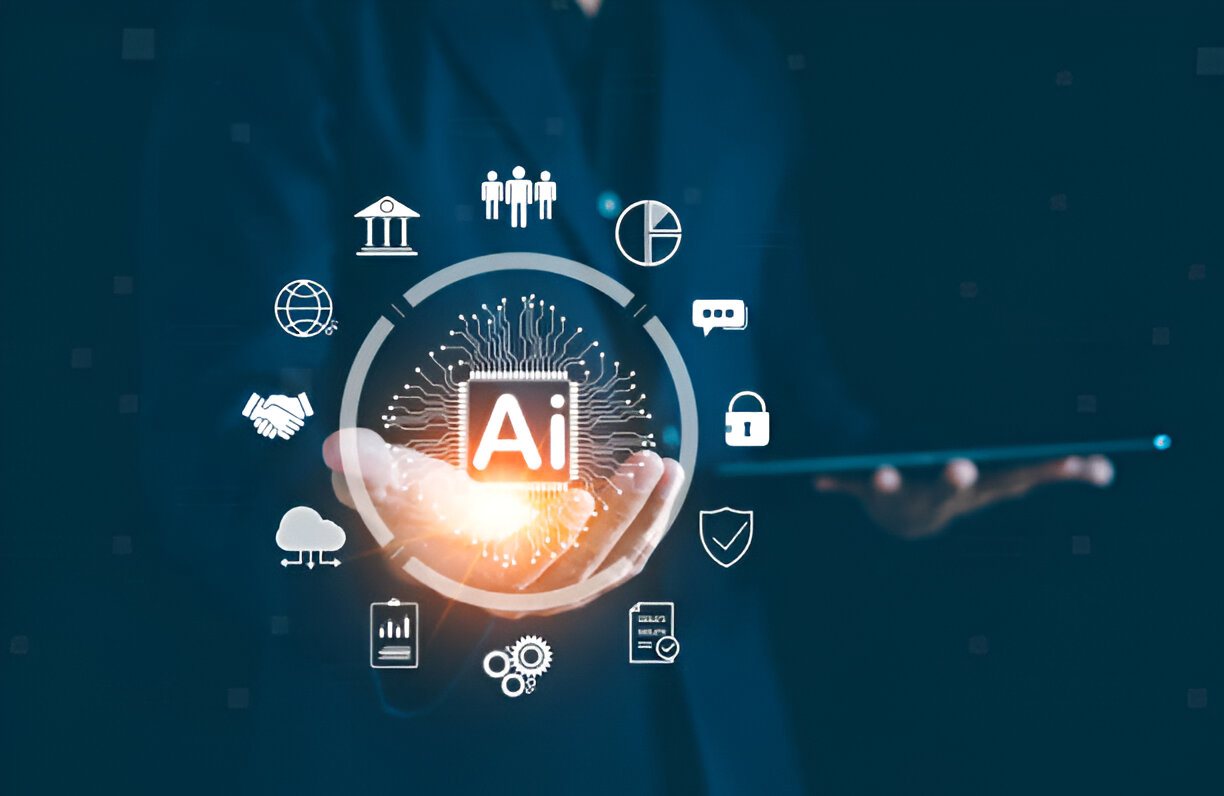In recent years, AI in retail has emerged as a transformative force, reshaping the entire shopping experience from backend operations to customer service. Retailers are increasingly adopting AI technologies to enhance customer experiences, optimize supply chains, and make data-driven decisions. How can AI improve your retail strategy? As customer expectations rise and competition intensifies, understanding AI applications in retail has never been more crucial for businesses looking to thrive in the digital age.
This article explores the various real-world use cases of AI in retail, examining both its current applications and its future potential. By delving into specific AI implementations, we’ll highlight how companies are harnessing this technology to create smarter retail environments.
AI Applications in Retail
Enhancing Customer Experience with AI
One of the most significant impacts of AI in retail is its ability to enhance customer experiences. Personalization is at the forefront of this transformation. AI systems analyze customer data, preferences, and behaviors to deliver tailored recommendations and communications.
- Chatbots: Many retail brands utilize AI-driven chatbots to provide instant customer support. For instance, Sephora employs a chatbot on their website and app to answer customer queries, recommend products, and guide shoppers through their purchasing journey.
- Recommendation Engines: E-commerce giants like Amazon leverage advanced algorithms to analyze customer purchase history and browsing patterns, suggesting products that align with interests. This personalized shopping experience leads not only to higher customer satisfaction but also to increased sales conversions.
AI in Supply Chain Management
AI also plays a crucial role in supply chain management. By optimizing inventory and logistics, retailers can significantly cut costs and improve efficiency.
For example, Walmart employs AI technology to ensure precise inventory levels based on customer demand forecasts, reducing overstock and stockouts alike. In a case study, Walmart reported a 20% increase in inventory turnover after integrating AI algorithms into their logistics processes.
Moreover, retailers are using AI to enhance demand forecasting. Using machine learning, businesses can analyze historical sales data and predict future demand, ensuring that they have the right products available at the right time.
Future of AI in Retail
Predictive Analytics for Retail Trends
The future of AI in retail is heavily centered around predictive analytics. With the increasing volume of data available, retailers can now forecast trends and customer behavior with great accuracy.
For instance, Target used predictive analytics to successfully identify customer purchasing patterns, allowing them to tailor marketing campaigns and stock products accordingly. They found that certain lifestyle changes often correspond to shifts in shopping behavior. The success of such implementations highlights the potential for retailers to stay ahead of the curve and satisfy evolving customer preferences.
AI-Driven Inventory Management
AI is revolutionizing inventory management by automating processes and optimizing stock levels. Retailers that embrace AI-driven inventory solutions can expect enhanced accuracy and reduced waste.
Consider the fashion retailer Zara, which has integrated AI-driven tools to manage stock levels efficiently. Through AI, Zara can analyze customer feedback and social media trends to adjust inventory quickly. This has led to significantly shorter lead times and lower markdowns, ensuring that Zara remains a competitive player in the fast-paced fashion industry.
Role of Software Development Company in AI
Custom AI Solutions for Retail
To fully harness AI in retail, businesses often turn to a software development company to develop tailored AI applications. These companies understand the unique challenges retailers face and create customized solutions accordingly.
For example, an AI-focused software development company might develop tailored algorithms that cater specifically to a retailer’s inventory management needs, allowing for real-time inventory balance checks and demand forecasting. This customization not only enhances operational efficiency but also improves customer satisfaction through more reliable product availability.
Integration of AI and Existing Systems
Integrating AI with existing systems can be challenging, especially for retailers working with legacy systems. However, a competent software development company can help overcome these obstacles by creating seamless integrations that protect existing data structures while enhancing functionality.
Successful integration of AI at a major retailer might include the use of middleware solutions that bridge the gap between traditional systems and modern AI applications. Through these integrations, retailers can enjoy the advantages of AI without overhauling their entire operations, thus minimizing risk and disruption.
Mobile App Development Company and AI
Enhancing Retail Apps with AI
Mobile apps have become an essential extension of retail strategies, and incorporating AI technology into these apps can significantly enhance their functionality. A mobile app development company can embed AI features that improve user experience and customer loyalty.
For instance, Walmart’s app has integrated AI to allow users to take pictures of items and find similar products online, streamlining the shopping experience. Moreover, apps like Nike use AI to offer personalized fitness plans based on user data, further engaging customers and providing added value.
User Engagement Strategies for Retail Apps
With fierce competition in the retail landscape, improving user engagement in mobile apps is imperative. AI can play a vital role in enhancing user engagement strategies, keeping customers coming back.
Data indicates that users are more likely to interact with apps that offer personalized experiences. For example, Spotify uses AI to curate playlists based on individual user listening habits, thus increasing usage frequency. In retail, similar strategies could be employed, where retailers provide tailor-made promotions or recommendations based on user preferences, boosting both retention and satisfaction.
Case Studies of AI in Retail
Success Stories of AI Implementation
Numerous companies have successfully integrated AI into their retail operations, leading to substantial gains. For example, Lowe’s implemented an AI-powered robot capable of assisting customers in finding products in their stores. This initiative not only improved customer satisfaction but also reduced wait times significantly, showcasing how AI can enhance the in-store experience.
In another instance, Starbucks utilized AI to optimize its supply chain and customer engagement through its “Deep Brew” program, which personalizes customer experiences while predicting demand patterns. As a result, Starbucks saw a notable increase in customer loyalty and frequency of visits.
Lessons Learned from AI Failures
Not all AI implementations have been smooth sailing. Several retailers have faced challenges and failures in adopting AI technologies. For instance, one notable failure involved a popular fashion retailer that rushed to launch an AI-driven chatbot without adequate testing. The chatbot frequently misunderstood customer inquiries, leading to frustration rather than assistance.
These failures often stem from a lack of comprehensive planning, insufficient understanding of customer needs, or inadequate technology infrastructure. Retailers can learn valuable lessons from such experiences. Thorough testing, gradual implementation, and close evaluation of outcomes are critical components for successful AI adoption.
Challenges of Implementing AI in Retail
Data Privacy Concerns with AI
As AI technologies collect and analyze vast amounts of customer data, data privacy concerns are paramount. The implementation of AI in retail requires stringent measures to protect consumer data and comply with regulations like GDPR.
Retailers must adopt best practices for ethical AI use, such as anonymizing data, ensuring customer transparency, and providing opt-out options for data collection. By taking these steps, retailers can build trust with customers and mitigate potential backlash.
Cost vs. Benefit Analysis of AI in Retail
Integrating AI into retail also raises questions about the cost versus the benefits of such initiatives. While the up-front investment in AI technology can be significant, the potential returns often justify the expense.
Conducting a cost-benefit analysis helps retailers determine the financial viability of their AI projects. For example, a retailer might analyze how improved demand forecasting can reduce excess inventory costs, while simultaneously increasing sales through better-stocked shelves. Such analyses can provide insights into potential ROI and help secure stakeholder buy-in.
Conclusion
In summary, AI in retail is a powerful tool reshaping how businesses interact with customers and manage operations. From enhancing customer experiences through personalized recommendations to optimizing supply chains with predictive analytics, the capabilities of AI are vast and varied. As highlighted, not only does AI provide numerous advantages, but it also presents challenges that retailers must navigate carefully.
As a trusted authority in AI solutions, Wildnet Edge recognizes the importance of integrating AI into retail strategies effectively. Businesses looking to adopt AI should collaborate with knowledgeable partners committed to ensuring successful implementation. Consider these insights and take the first step in leveraging AI for your retail operations to stay competitive and efficient.
FAQs
Q1: What are the main AI applications in retail?
AI applications in retail include chatbots, recommendation engines, and predictive analytics for inventory management.
Q2: How is the future of AI in retail shaping consumer experiences?
The future of AI in retail aims to enhance personalization, streamline operations, and improve customer satisfaction.
Q3: Why hire a software development company for AI integration?
A software development company can create tailored AI solutions that fit specific business needs and ensure smooth integration.
Q4: What role does mobile app development play in retail AI?
Mobile app development incorporates AI features that enhance user engagement and improve customer service.
Q5: What challenges do companies face when implementing AI in retail?
Challenges include data privacy concerns, integration issues with existing systems, and the cost of technology adoption.

Nitin Agarwal is a veteran in custom software development. He is fascinated by how software can turn ideas into real-world solutions. With extensive experience designing scalable and efficient systems, he focuses on creating software that delivers tangible results. Nitin enjoys exploring emerging technologies, taking on challenging projects, and mentoring teams to bring ideas to life. He believes that good software is not just about code; it’s about understanding problems and creating value for users. For him, great software combines thoughtful design, clever engineering, and a clear understanding of the problems it’s meant to solve.
 sales@wildnetedge.com
sales@wildnetedge.com +1 (212) 901 8616
+1 (212) 901 8616 +1 (437) 225-7733
+1 (437) 225-7733















 ChatGPT Development & Enablement
ChatGPT Development & Enablement Hire AI & ChatGPT Experts
Hire AI & ChatGPT Experts ChatGPT Apps by Industry
ChatGPT Apps by Industry ChatGPT Blog
ChatGPT Blog ChatGPT Case study
ChatGPT Case study AI Development Services
AI Development Services Industry AI Solutions
Industry AI Solutions AI Consulting & Research
AI Consulting & Research Automation & Intelligence
Automation & Intelligence















